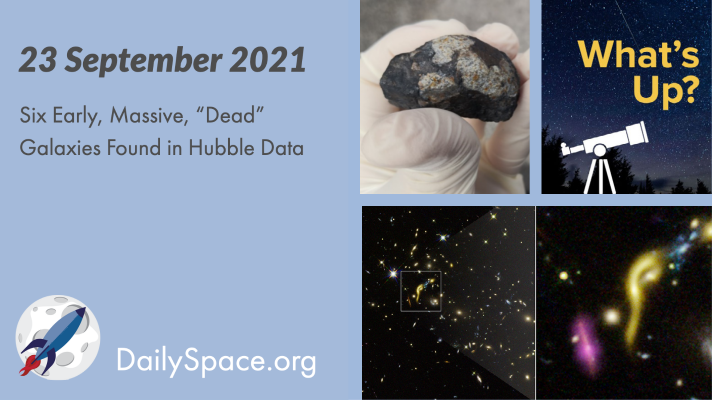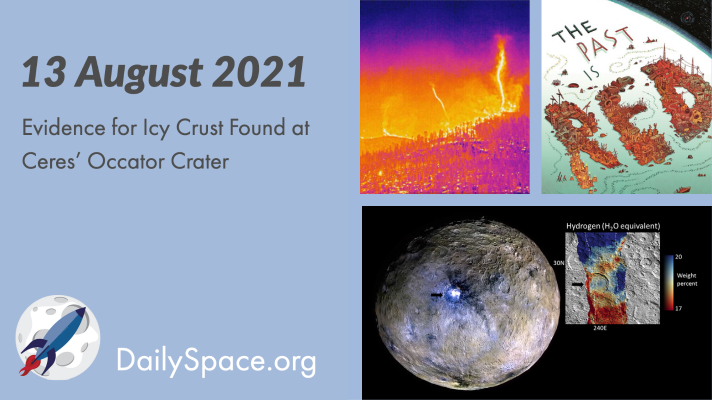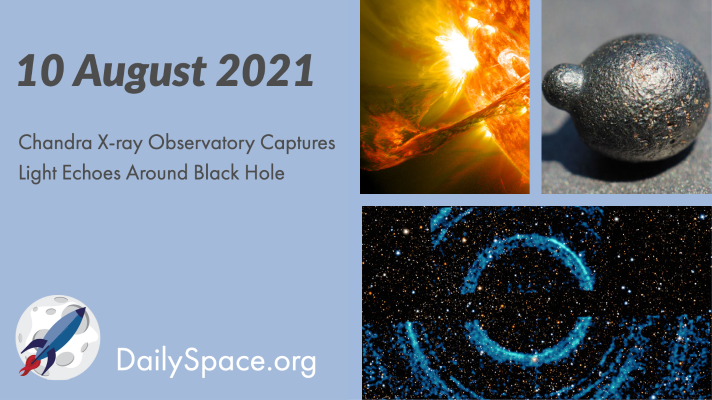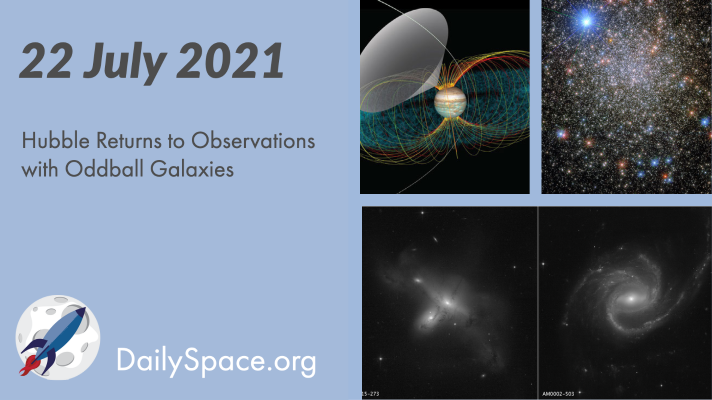
Sep 24, 2021 | Asteroids, Daily Space, Earth, Galaxies, Mars, Moon, Neptune, Observatories, Rovers, Sky Watching, Supernovae, Uranus
While searching for objects deep in the universe’s history, at about three billion years of age, researchers found six massive but “dead” galaxies in Hubble and ALMA data, a strange finding for a time period known for prolific star birth. Plus, planetary science from the EPSC2021 conference and this week’s What’s Up.

Sep 8, 2021 | Asteroids, Astrobiology, Climate Change, Daily Space, Earth, Exoplanets, Galaxies, Mars, Neutron Stars / Pulsars, Our Solar System, Perseverance, Supermassive Black Holes, Supernovae, Very Large Array
Hycean worlds have hydrogen-rich atmospheres and are covered in oceans, making them prime candidates for the search for life outside our own solar system. These worlds are also more numerous and easier to find than Earth-like exoplanets. Plus, an update on the search for Planet 9 and how volcanoes may provide a climate safety valve.

Aug 24, 2021 | Comets, Curiosity, Daily Space, Earth, Mars, Perseverance, Review
New research has pinpointed small, violent faults caused by the breakup of an ancient supercontinent as the potential cause of a major loss in the rock record of the Grand Canyon, known as the Great Unconformity. Plus, using sky mapping tools to find earthly tombs and a review of Andy Weir’s “Project Hail Mary.”

Aug 17, 2021 | Asteroids, Climate Change, Earth, ESA, Mars, Perseverance, Review, Venus
Using a neutron spectrometer on board the Dawn spacecraft, scientists have found elevated concentrations of hydrogen in Ceres’ Occator Crater, which provides evidence of an icy crust. Plus, everything is on fire in the western United States, and we review “The Past is Red” by Catherynne M. Valente.

Aug 11, 2021 | Asteroids, Black Holes (Stellar), Daily Space, Earth, Jupiter, Mars, Mars 2020, Perseverance, Stars, The Sun
Based on X-ray detections from the Neil Gehrels Swift Observatory, scientists used the Chandra X-ray Observatory and found rings called light echoes moving out from a black hole and its companion star, reflecting off the surrounding dust clouds. Plus, solving the puzzle of the Sun and using glassy nodules to find a meteorite impact.

Jul 23, 2021 | Conferences, Daily Space, Exoplanets, Galaxies, Globular Cluster, Jupiter, JWST, Perseverance, Sky Watching, Spacecraft, Spitzer, Stars, White Dwarfs
After several weeks of trying different methods, the operations team successfully revived the stalwart Hubble Space Telescope, which experienced a payload computer fault back on June 13. The first images taken were of several unusual galaxies. Plus, Jupiter’s moon Io triggers radio emissions from the giant planet, and this week, What’s Up returns with a look at the Summer Triangle.








 We record most shows live, on Twitch. Follow us today to get alerts when we go live.
We record most shows live, on Twitch. Follow us today to get alerts when we go live.